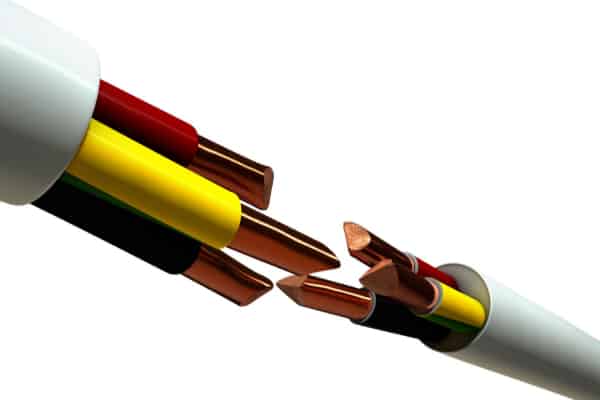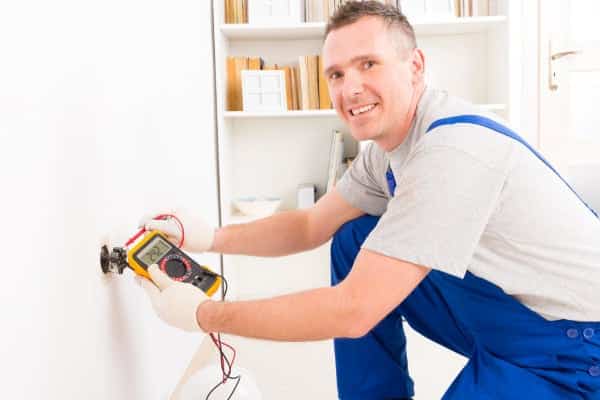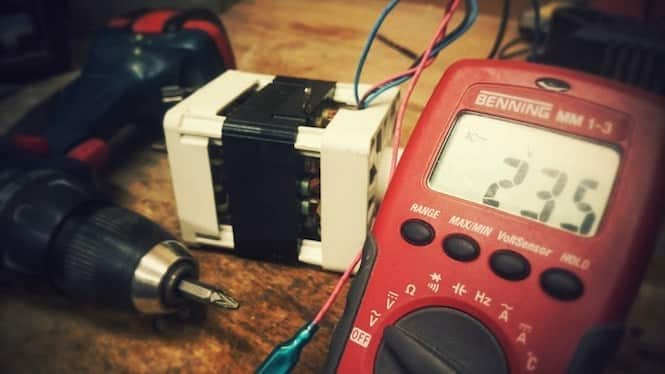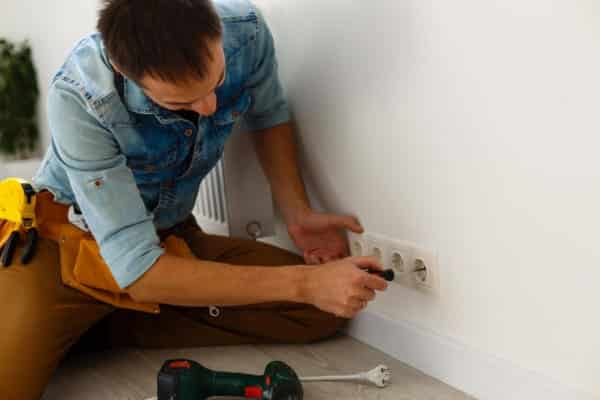Find My Local Expert What to do if You Find...
Read More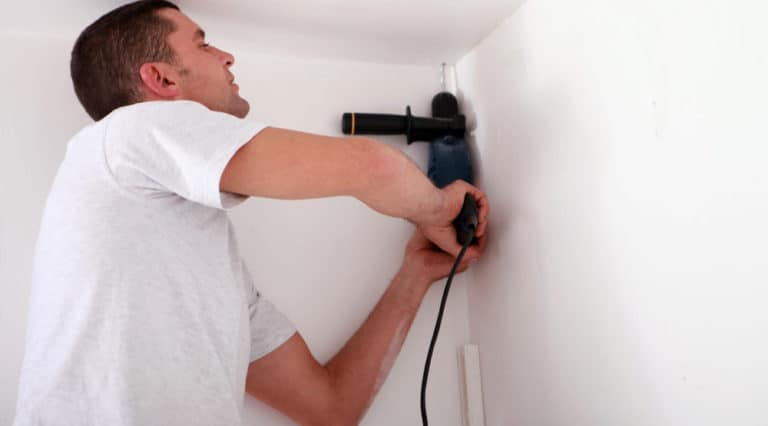
Accidentally Drilled Through a Cable? Here’s What to Do
One of the first pieces of advice you will likely get if you ask an expert about hanging shelves, pictures, or any other activity that involves drilling holes in a wall, is to make sure you don’t drill through an electrical wire! It sounds like a no-brainer, but it’s a little easier said than done. And even when you know better, we all make mistakes from time to time.
Of course, we wouldn’t want to assume that everyone reading this is a seasoned DIYer, so what do we mean by drilled electric cable? The electricity in your home or business property is supplied by a network of cables that are run all over the property, mostly through walls, under floorboards, and in ceilings. The very same walls that you would drill into if you wanted to hang shelves, or hammer nails into to hang pictures, and so on.
You probably don’t need a certification in electrical appliances to know that drilling through a live electrical cable is not a good idea, and certainly not good for your home. In the very best case scenario, you would have a broken electrical cable in a place that you can’t get to without doing a bit of unplanned demolition on your walls, but things could be worse than even that.
How do You Know if You’ve Drilled into a Cable?
Your first warning would be the thing that the wire is carrying electricity to suddenly losing power, but of course that would be contingent on that thing being powered on at the time you drilled through the wire.
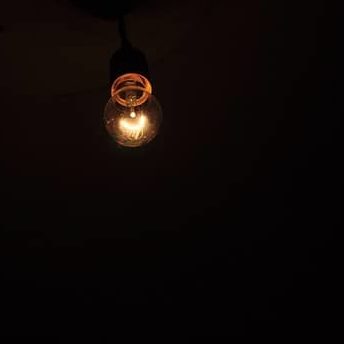
It would be very unlikely that such an incident would only affect the appliance or fixture at the end of the cable, however. Somewhere back along the circuit there should be a breaker that is there to protect you and your property in the event that something like this happens, and it does so by cutting the electricity to that circuit when it notices the change in electrical properties associated with a shorted circuit. Again, you would need something on that circuit to be visibly powered up so you could notice it power down for this to be a useful way of telling you have drilled through a cable.
That being said, unless you have drilled through the wire going to a big ticket item like an electric oven or shower, there should be several fixtures or outlets on the same breaker. For example, if you drill through a wire on the lighting circuit, it should trip the fuse or breaker for all of the lights.
Finally, your most up front sign that you’ve drilled through an electrical wire will be the bang and possible flash as the wires short out. The flash will only be visible through the hole you are drilling, of course, but with the amount of electricity in a typical building, the bang should be loud enough to hear through walls.
Things to Check When This Happens
The first thing to check is that you are okay. If you are using a safe drill that is in good condition, you should have been protected from any potential electric shock, but if your drill has a metal chuck and your hand was in contact with it at the point of drilling through the wire, the electricity will have headed for the easiest route to ground, which will likely have been along the drill bit and through your body. It is very unlikely that you will have received an electric shock without realising, however.
The next thing to check is that the incident did not start a fire. This will be tricky with the wire being behind a wall and (likely) your only way to view what’s going on back there being the small hole you have just drilled, but you should be able to smell burning, and in cases where it has progressed far enough, you may be able to see the flickering of a flame through the drill hole. Of course, if this has happened, it’s time to call the fire brigade and get yourself and your loved ones out of the house!
Fixing the Problem
Unfortunately there is no version of this problem that doesn’t involve getting a qualified electrician on site to take care of it, so we won’t go into any detail about the electrical repair here. A more obvious problem, however, is the fact that the wire is behind a wall, and your electrician is going to need to get to it. In other words, you may need to enlist the help of a contractor to fix your wall as well.
Speak to your electrician first, as they may have recommendations for who to bring in. In some cases, they may even take care of the wall for you. At the very least they will be able to let you know what will need doing so you can get a quote from a contractor.
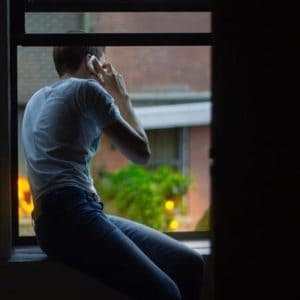
Tips for Preventing Drilling into Cables
All this talk of what to do when you accidentally drill through an electrical wire may be useful, but there’s no getting around the fact that the best way to deal with this problem is to not create it in the first place. So, with that in mind, let’s look at some tips for preventing drilling in electrical cables.
- Don’t Drill Deeper Than You Have To. Most of the time when drilling a wall, you’re only drilling through some plasterboard/drywall. In these cases, there is no benefit to continuing on into the cavity behind that plasterboard, so don’t. Even if you do have some unfortunate placement issues and line your drill hole up with an electrical wire, only drilling far enough to get through the plasterboard will prevent you from damaging the wire.
- Know Your Stud Spacing. For stud walls, the stud spacing is the distance from the centre of one stud to another, the studs being the upright pieces of wood that the plasterboard of your walls is fixed to. If you limit your drilling to spots that are right over a stud, you should be safe from hitting any wires. Mostly. There are times when a wire will need to pass through a stud, so this method is not foolproof.
- Get a Stud Finder or Voltage Detector. These devices are a non-invasive way of detecting what is behind your wall, and can be used for finding the aforementioned studs, as well as wires, and tracing their path behind the wall. To avoid aimlessly feeling around the wall all day, start somewhere nearby where you know there is electrical wiring—such as near an outlet—and trace the wiring back. If you’re lucky, it will be on the same circuit as the wire you drilled through.
- Get an Expert! DIY can be fun, and being self-sufficient is something many of us like to strive for, but there are times when it’s best to let the pros take care of it. If you aren’t confident about being able to safely drill a hole in your wall, don’t. You’re risking your safety, your property, and some hefty repair bills. Calling a professional to take care of the job may cost more than doing it yourself, but it will certainly cost less than paying for the repairs if you drill through that wire!
Final Thoughts
It may feel good to tackle things like this yourself, but any time electricity is involved, we can’t stress strongly enough how important it is to not get carried away. Let the experts take care of this, because the costs of repairing an accidentally drilled electrical wire will be far higher than the costs of hiring someone to drill the holes in the first place.
And, remember, if it’s too late for that, if you have an accidentally drilled cable, do not reset that breaker until the wire has been repaired!
You May Also Like...
Securing a Loose Electrical Outlet
Find My Local Expert Securing a loose electrical outlet Most...
Read MoreGuide on Electrical Inspection and Testing
Find My Local Expert A Guide about Electrical Inspection and...
Read MoreElectric Cooker Installation
Find My Local Expert Getting Ready for an Electric Cooker...
Read MoreDo I Need an Electrician to Move an Electrical Outlet?
Find My Local Expert Do I Need an Electrician to...
Read MoreAccidentally drilled through a cable?
My Trusted Expert Guarantee
Experts Have Been Vetted & Approved
